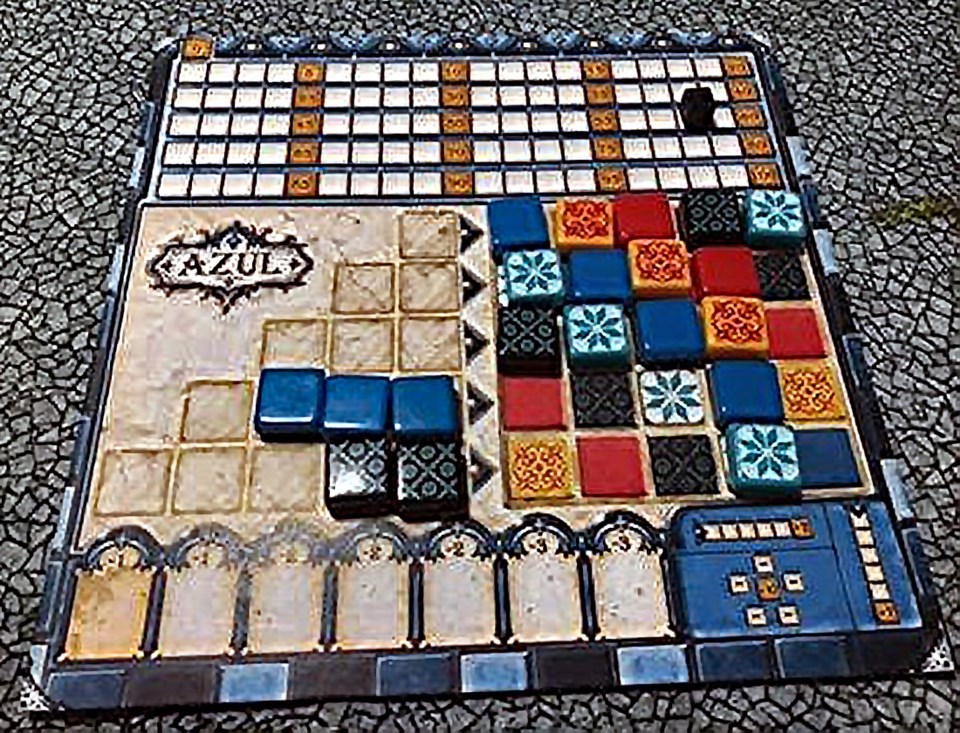YORKTON - There are always games that end up surprising once played.
Azul proved to be that sort of game recently.
The game was a Yule gift from my son, but a COVID pandemic and a crazy work schedule meant the game had sat unplayed for a few weeks before we gathered for a game night and put it on the table.
Now Azul is not a new game, it was first released from designer Michael Kiesling in 2017, but it was not a game that I had ever really put on a ‘want list.’
In retrospect that was a misstep on my part.
The game rates highly on www.boardgamegeek.com, a go-to site for all things board game-related with just under 100,000 owning the game, a number that is likely far fewer than are actually out there. One review suggested hundreds of thousands in sales.
Now to be fair high ratings are not necessarily something that assures anyone else will like the game. Wingspan rates high on BGG and it fell rather flat at our table.
But with Azul the rating seems warranted.
To start with the game rules are pretty straight forward and simple to follow. That meant we might have just unboxed the game the first night, but we were playing in about 30-minutes – and yes it helps we play many games but this one could be picked up by non-gamers smoothly.
The game is one about drafting tiles, nice brightly coloured ‘bakelite’ tiles, which are really nice to handle, and are brightly coloured too, giving Azul high marks for aesthetics.
You collect tiles over a series of rounds, trying to build columns, rows, or gathering five of one colour, all of which score points at the end of the game.
Generally games are tightly contested – only once did a player get left in the dust and only once did a player manage a sizeable margin of victory over some nine, or 10 plays.
While in-game scoring contributes, the winner will need to have had a good final scoring to emerge the victor.
The game is relatively quick too. We put about 10 games in the book in roughly three hours. In that time we actually boxed the game up, then decided one more, and had it back on the table in minutes, so set up is quick.
Azul is a game where ‘just one more game’ is likely to be an oft heard comment, and is a quick game to wrap up a game night with something fun, yet not too taxing in terms of strategy.
And yes this is very much an abstract strategy game. Once the tiles are pulled from the bag to randomize the starting tiles in play for a round everything else is right there in front of players, so you can see what opponents are doing in terms of scores and try to thwart some of their plans if you want too.
Yet, as an abstract strategy game Azul plays as a two, three, or four player game. It’s rare that multi-player abstract strategy games don’t bog down in ‘kingmaker’ actions by someone, or ganging up on the weakest player by others at the table. Most are not overly enjoyable as a result.
Blokus, for example plays four quite well, but a player perceived as weak will find themselves boxed out quite often.
Azul, at least for three players, plays well, we each won about a third of games opening night, and because the number of tiles is adjusted down for two players and up for four, it seems likely the game will be fine, with BGG raters leaning toward it being best with two.
This game was a most pleasant surprise, with the three Meeple Guilders at the table all giving it high marks. It is likely to become a regular time filler, and was a great Yule gift.




